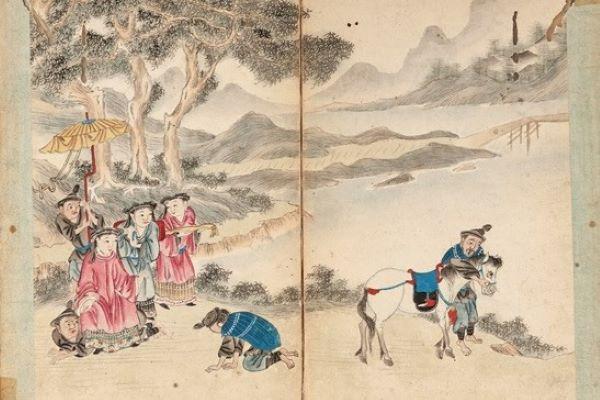
The Institute for Chinese Studies presents:
Gender and Regional Representation of Southwest China
with speakers
Jing Zhu, "Representation of the Southwest Frontier: Visuality, Gender, and non-Han Bodies"
Xi'an Jiaotong Liverpool University
and
Megan Bryson, "Reading Obliquely: Gender and Ethnicity in the Historical Record"
University of Tennessee
coordinated by
Wenyuan Shao
Postdoctoral fellow, School of Sociology and Political Science, Shanghai University
with commentator
Dorothy Noyes
The Ohio State University
Abstract "Representation of the Southwest Frontier: Visuality, Gender, and non-Han Bodies": This paper explores new ways to study the representation of Southwest China and it suggests visuality, gender and body are useful categories to understand Chinese imperial regimes in the frontier. Bringing the role of visuality to the fore, this paper explores imperial documentation of the Southwest borderlands beyond text, and highlights different sources of information. It draws on materials from different historical periods: Miao album, a genre of ethnographic illustrations depicting non-Han peoples and environment in late imperial China, and ethnographic photography and paintings during the second Sino-Japanese war period. Images pertaining the Southwest frontier were largely produced in both periods. Probing how the bodies and daily lives of non-Han peoples in the southwest were “translated’ in visual images, it emphasizes the significant role of gender norms in Han Chinese culture in the visual representation of non-Han bodies. By examining the intersections of visuality, gender and body, it seeks new ways to explore how imperial Power relationship of ethnicity is conveyed, popularized, and circulated in Chinese history.
Jing Zhu is Assistant Professor at China Studies department in Xi’an Jiaotong Liverpool University. She received her PhD of History from the University of Edinburgh, and held her Postdoctoral fellowships in the University of Warwick, Humboldt University in Berlin and London Science Museum. Her publications appear in several peer-reviewed journals. Jing is interested in the history of images, and her interdisciplinary research explores the intersections of visuality, anthropology, history of empire, frontier studies, gender history, and history of sciences. This features in her monograph Visualising Ethnicity in the Southwest Borderlands: Gender and Representation in Late Imperial and Republican China (Leiden: Brill, 2020). Following her previous research, Jing is developing two new research projects: British collecting and exhibition of traditional Chinese medicine in the 19th and 20th century, and the invention of Minzu dance in modern China.
Abstract "Reading Obliquely: Gender and Ethnicity in the Historical Record": Scholars studying gender and ethnicity in contemporary China may adopt ethnographic methods to talk to people whose voices do not appear directly in historical sources. Though ethnography presents its own challenges, this presentation focuses instead on the challenges of reading gender and ethnicity from premodern sources. Using the example of the goddess Baijie in Yunnan’s history from the 12th to 20th centuries, I will discuss the issues involved in projecting discourses of ethnicity and gender into the past; the extent to which gendered and ethnic identification are legible in premodern sources; and interdisciplinary approaches that can draw out the voices of women and others who did not directly produce historical sources. “Reading obliquely” refers to the method of identifying these voices, or at least the discourses and material world they would have encountered and inhabited.
Megan Bryson is Associate Professor of Religious Studies at the University of Tennessee, Knoxville. Her research focuses primarily on religion in the Dali region of Yunnan Province. Bryson is interested in how regions such as Dali complicate categories of “Chineseness,” including the category of Chinese religions itself, as well as how gender and ethnicity intersect. Bryson’s first book, Goddess on the Frontier: Religion, Ethnicity, and Gender in Southwest China (Stanford University Press, 2016), traced the worship of a local deity in Dali from the 12th to 21st centuries. She has also published several journal articles in such venues as the Journal of the International Association of Buddhist Studies, Signs: Journal of Women in Culture and Society, and Asia Major. Her current projects include Buddhism on the Southern Silk Road, a monograph on the textual, visual, and material transmission of Buddhism in and around the Dali kingdom, as well as the edited volume Buddhist Masculinities (with Kevin Buckelew). Bryson’s research has been supported by an ACLS fellowship and she serves on the Board of Directors of the Society for the Study of Chinese Religion and the Tang Studies Society.
